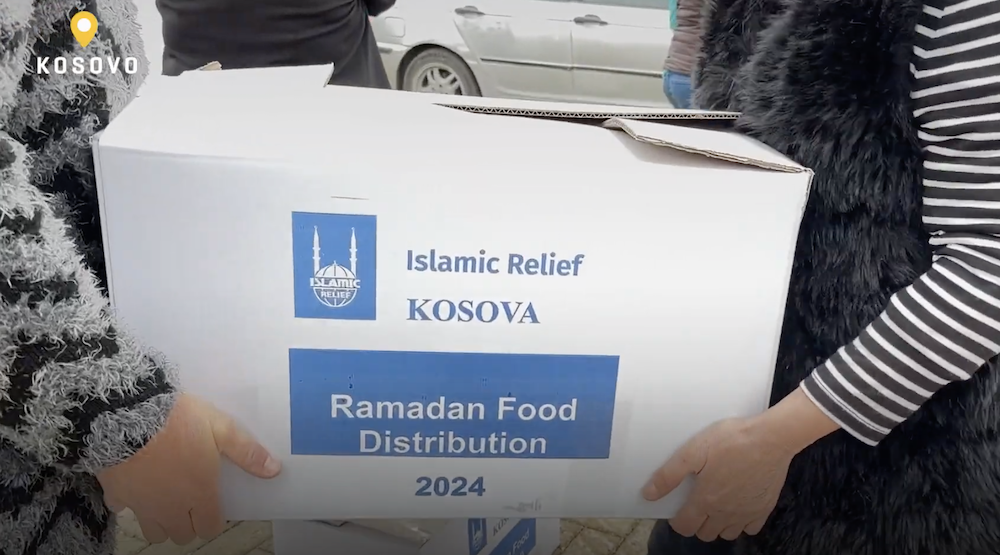Ramadan is the holiest month of the year for Muslims. Beginning this year on March 10, it celebrates the moment that the first verses of the Quran were revealed to the Prophet Muhammad. Over the month-long celebration, Muslims engage in deep spiritual reflection.
To aid in this reflection, Muslims stop eating or drinking from sunrise to sundown. This ancient practice allows them to develop empathy and compassion for those who are without enough food to eat.
Unfortunately, the number of people facing food insecurity around the world is rising. In Muslim-majority countries, more than 600 million people don’t have enough to eat, according to the global NGO Islamic Relief, with about one-third of these experiencing severe hunger. In the United States alone, data from the Department of Agriculture indicates that 44 million people are experiencing food insecurity.
Aiding and uplifting communities in need
Driven by Islamic principles calling on Muslims to help those who are less fortunate, Islamic Relief USA (IRUSA) strives to provide meals to people who are hungry. A nonprofit organization founded in 1993, IRUSA is committed to ridding the world of poverty through programs focused on aiding and uplifting communities in need.
Its largest program, food aid, provides food boxes to vulnerable families. In conjunction with Ramadan 2024, IRUSA aimed to put these boxes in the hands of more than 720,000 people. To achieve this goal, it organized and supported food packing and food distribution events across the country. From San Diego to Washington, DC, let’s take a look at how IRUSA worked to support families in need this Ramadan.
Packing 4,400 food boxes
Prior to the start of Ramadan, volunteers joined with IRUSA staff and representatives across Georgia, Maryland, Virginia, and Washington, DC. The goal: to pack 4,400 food boxes.
According to Kesha Abdul-Mateen, senior regional US programs coordinator at IRUSA, the boxes are full of nonperishable items that can sustain a family for as much as a month. Once packed, the boxes were to be sent to IRUSA partner organizations across the country for distribution in their communities.
Beyond helping to provide for those who are less fortunate, Abdul-Mateen notes that the food-packing events bring communities together. Families join with other families; young people work side by side with their elderly neighbors; and Muslims of various backgrounds and ethnicities come together to support all people in need, regardless of religion.
Providing 100,000 meals
On March 9, IRUSA organized another food-packing event. Held at College Preparatory School in the Chicago suburb of Lombard, the event aimed to provide 100,000 meals to Chicago-area families.
To achieve this ambitious goal, IRUSA staff were joined by Muslim student volunteers from Chicago-area colleges to assemble food boxes. The boxes, which contained Basmati rice and other ingredients for an easy-to-prepare meal, were to be delivered to refugee families as well as families who were financially disadvantaged.
Offering vital support
Among IRUSA’s local partners is the Somali Family Service of San Diego, California. On March 16, the two organizations joined together to distribute food boxes in the Southern California city.
Among those waiting in line was Mohammad Hamim. An immigrant from Kabul, Afghanistan, Hamim had arrived in the United States only three weeks before. He had been looking for a job and needed help with feeding his family.
According to Najla Ibrahim of the Somali Family Service of San Diego, the organization serves many people like Hamim. This support is especially vital considering, according to Ibrahim, that immigrant and refugee communities face high rates of food insecurity.
IRUSA and Somali Family Service of San Diego provided meals to 100 families on March 16 alone. The organizations also set aside an additional 180 meals for local people who were elderly or disabled.
Helping vulnerable families
Halfway across the country, on the same day as the San Diego event, IRUSA teamed with Khan Ohana Foundation to spend the first Saturday of Ramadan distributing food boxes to vulnerable families in Tulsa, Oklahoma.
The boxes contained common pantry staples like beans, pasta, sugar, and flour, as well as traditional Ramadan food items. Among these were the ingredients for harira, a nutritional soup that many Muslims of North African descent use to break their fasts.
The event ultimately saw the two organizations distribute 300 food boxes. In keeping with Islamic principles, the support was available to anyone in need.
IRUSA helps DFW Refugee Outreach Services
In the early days of Ramadan, food insecurity was so great in communities served by DFW Refugee Outreach Services that it ran out of food. IRUSA responded by providing the local nonprofit with food boxes.
On March 13, volunteers distributed these food boxes to local families at DFW Refugee’s offices in northeast Dallas, Texas. For DFW Refugee Outreach Services, the event was an extension of its effort to provide local refugee families with the food items they needed most to make it through Ramadan.
The nonprofit had provided aid to between 400 and 500 of these families before the “immense” need for food assistance overwhelmed it. With IRUSA’s support, it was able to support more vulnerable families than it could have on its own.
